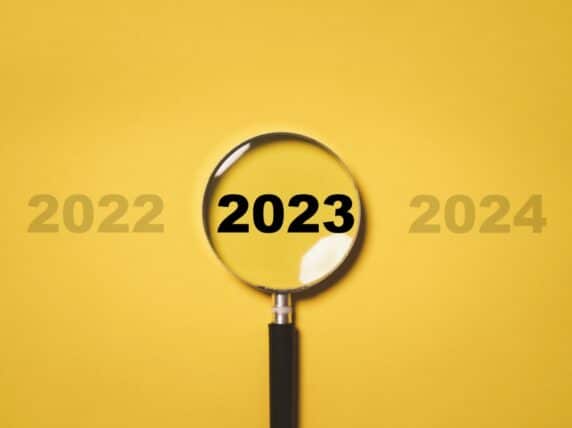The UK’s commitment to the SDGs: Reflections from the SDG Summit
Last week, the world gathered in New York for the Sustainable Development Goals (SDG) Summit as part of the UN General Assembly.
Reflecting on the first half of Agenda 2030 and the implementation of the SDGs, this was a sobering moment which highlighted that we are severely off track with achieving the SDGs. Yet not all hope is lost as we move into the second half – and the adoption of the Political Declaration was a crucial moment in the attempt to reunite the world around a shared promise to deliver on the SDGs.
The Political Declaration
It did not always look like the Political Declaration would be adopted after the UK and other countries blocked it during the summer, and negotiations proved difficult up until the end. Concessions had to be made and, while far from perfect, its adoption was an important achievement, with world leaders reaffirming their commitment to the SDGs.
There are some positive provisions in the declaration, including a commitment to the Leave No One Behind promise and a focus on the poorest, a call for greater policy coherence for sustainable development, and a plea for higher-income countries to fulfil the target of spending 0.7% of gross national income on official development assistance (ODA) – a commitment that many countries including the UK have abolished over recent years.
However, the commitments made in the declaration are not sufficiently tangible or time-bound. Language around the scaling up of financing for development is also too weak and we need to see more radical approaches, such as cancellation of debt or a universal UN Framework Convention on Tax.
After all, the declaration of political will is not enough and the President of the General Assembly urged countries to “use the Summit to announce ground-breaking commitments to support and to complete the 2030 Agenda.”
So, what did the UK announce?
The UK at the Summit
Like many other countries, the UK made pledges at the Summit. In contrast to most other countries, the UK delegation was not led by the head of state Prime Minister Rishi Sunak, but instead by Deputy Prime Minister Oliver Dowden, even though over 100 leaders in the UK international development sector called for the PM’s attendance. At the Leaders’ Dialogue on “Mobilizing finance and investments” the UK set out pledges for increasing financing:
- A guarantee of up to 300 million USD to the Innovative Finance Facility for Climate in Asia and the Pacific (IFCAP).
- A contribution of up to 180 million GBP of support to the International Finance Facility for Education (IFFEd), including up to 95 million GBP in grants and paid-in capital, and a contingent guarantee of up to 85 million GBP.
- A 25 million USD returnable investment for the Caribbean Water Utilities Insurance Collective (CWUIC).
- 17 million GBP to improve tax systems in developing countries.
- 3 million GBP to support the increased use of standards in Commonwealth countries.
Join our SDGs working group!
Join Bond’s Sustainable Development Goals working group to engage with colleagues across the international development and humanitarian sectors and influence the implementation of the SDGs in the UK and internationally.
Join the groupToo little too late?
Altogether this adds up to about 569 million USD, a large part of which is in the form of guarantees. While these are commendable pledges, this is not a very ambitious contribution to the 4 trillion USD annual finance gap by one of the richest countries in the world. In addition, the use of guarantees would require greater transparency to build confidence about effectiveness, additionality, and poverty focus development impact.
It is good to see that the UK is prioritising education – one of the key building blocks of a thriving, resilient society. But instead of supporting existing initiatives such as GPE or Education Cannot Wait, the UK government chooses to solve the pressures on delivering education for all by subjugating national education systems to loans from multilateral development banks, thus deepening national debt. Indeed, analysis by the Center for Global Development termed the International Finance Facility for Education (IFFEd) potentially “the wrong answer to the right question”.
Closing tax loopholes and improving tax revenues is of great importance. However the focus on the national tax systems of Low- or Middle-income countries (LMICs) should not overshadow the role of the UK and its jurisdictions in facilitating international tax avoidance and ongoing issues with transparency, as well as shifting attention away from the LMICs’ cry for a UN Tax convention, which so far OECD and the UK are ignoring.
While it is promising to hear the UK’s commitment to reform the global financial architecture, there was very little on the table as practical solutions and actions. We urgently need clear and bold steps to reduce the debt of LMICs, especially climate-sensitive countries, and a reform which goes beyond broadening of debt trap.
A missed opportunity
Overall, the UK’s pledge was far from what is needed to demonstrate global leadership or willingness to rebuild trust. Though the UK played a massive role in agreeing on the SDGs back in 2015, since then it has failed to develop a holistic and coherent approach to the implementation of the SDGs at home and abroad.
Last year’s report by Bond, as well as recent research from Newcastle University, supported by Bond’s SDGs working group, show the lack of prioritisation of the SDGs. The Summit was an opportunity to show renewed commitment and leadership, but the absence of high-level representation and the limited piecemeal pledges made this a missed opportunity. The upcoming White Paper on International Development offers yet another opportunity for the UK government to show real commitment and deliver on the SDGs.
Category
News & ViewsThemes
SDGs



